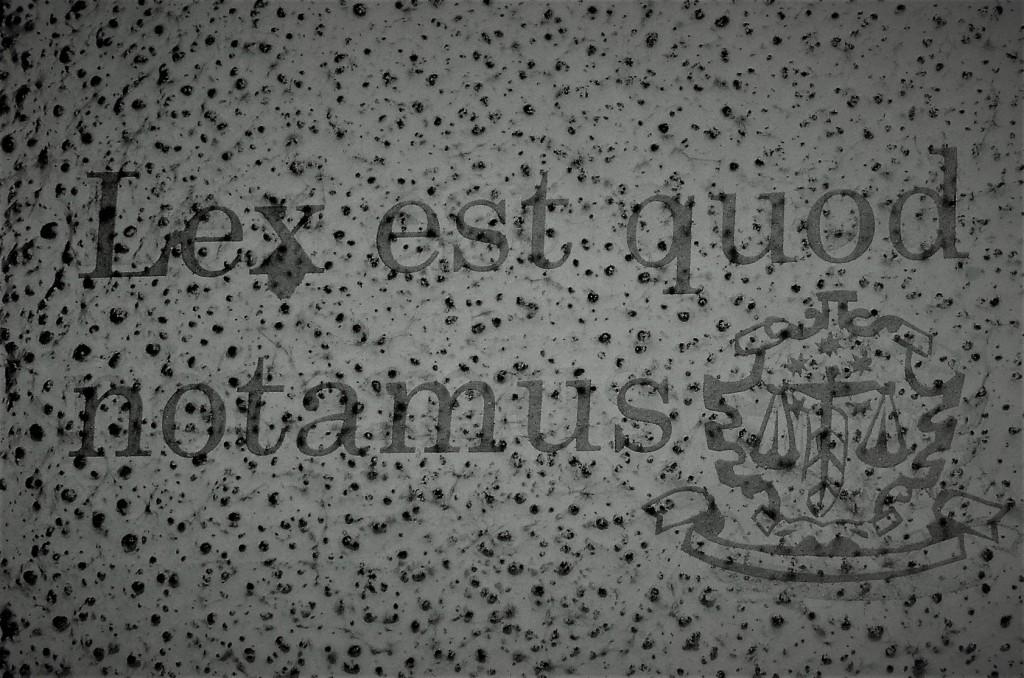

The Vilnius Regional Administrative Court on 19 February upheld a claim by the Lithuanian Chamber of Notaries and members of its Presidium in full, annulling an earlier judgement by the Competition Council, which had found the Chamber and its Presidium members guilty of a breach of competition law and had imposed penalties.
The panel of judges ruled that members of the Presidium of the Chamber of Notaries had exercised their statutory responsibility and acted within the law when they adopted decisions that established uniform fees for notarial services. According to the ruling, in providing guidance to notaries, the Chamber of Notaries had performed its public duty of unifying the notarial practice as set out directly in the Law on the Notarial Profession. Therefore, the judges ruled, the Chamber of Notaries was not to be equated to an ‘economic undertaking’ as defined in the Law on Competition. According to the Court, the judgement by the Competition Council “should be acknowledged as legally void due to this factor alone”.
“The court has confirmed that we ourselves and the most prominent civil and competition law professionals from Lithuania and other European Union member states had been saying all along for almost two years, while the investigation into the Chamber of Notaries had been in progress. All the decisions made by the Chamber of Notaries comply with the regulations and even more so with its duty of unifying notarial practice as set forth in the Law on the Notarial Profession. The court has smashed all the legally unfounded accusations coming from the Competition Council concerning any alleged breaches of competition by the Chamber of Notaries and its Presidium members,” said Mr Marius Stračkaitis, a Klaipėda Notary Public and President of the Chamber of Notaries.
According to the Vilnius Regional Administrative Court, the entire investigation by the Competition Council directed against the notaries had hinged on the legal interpretation and application of the concept of an ‘economic undertaking’, and such logic was itself “constructed in a legally risky manner“.
The Court found that the Competition Council had failed to prove that the Chamber of Notaries had adopted any decisions restricting competition. In addition, contrary to the Competition Council’s claims, the Chamber of Notaries did not exercise any influence over the Ministry of Justice concerning the approval of notarial service tariffs. In its ruling, the Court stated that the Ministry of Justice had its sole discretion in establishing notary fees, so it was able to essentially reject the tariffs suggested by the Chamber of Notaries or to recommend tariffs it deemed more appropriate. Contrary to the Competition Council’s claims, the case contained evidence that the Minister of Justice had actually approved some tariffs that were different from those suggested by the Chamber of Notaries; in other words, the Minister of Justice had not taken into account the comments and suggestions made by the Chamber of Notaries.
Moreover, the Court noted that the Competition Council had violated the constitutional principle that nobody should be prosecuted for the same breach twice. The Competition Council had penalised both the Lithuanian Chamber of Notaries collectively and some notaries as private individuals, even though the latter were members of the Presidium – the management body of the Lithuanian Chamber of Notaries.
In the Court’s opinion, the Chamber of Notaries is a state-controlled notarial authority performing clear public functions, therefore, the police-assisted sting operation by the Competition Council could be evaluated as superfluous and obstructing peaceful and respectful cooperation between legal institutions, thus programming a conflict between the Competition Council, the Ministry of Justice and the bodies in charge of notarial self-management.
In addition, the Court stated in its sixteen-page ruling that the Competition Council had always been familiar with the legal regulation of the notarial market and notarial tariffs for certification of transactions because it had taken an active part in the process of notarial market monitoring. Following its investigation into the Chamber of Notaries, the Competition Council came up with a new position that was essentially different from its position expressed several years ago in statements by its own representatives, for instance, that notaries could compete only in the quality of their services, but not in price.